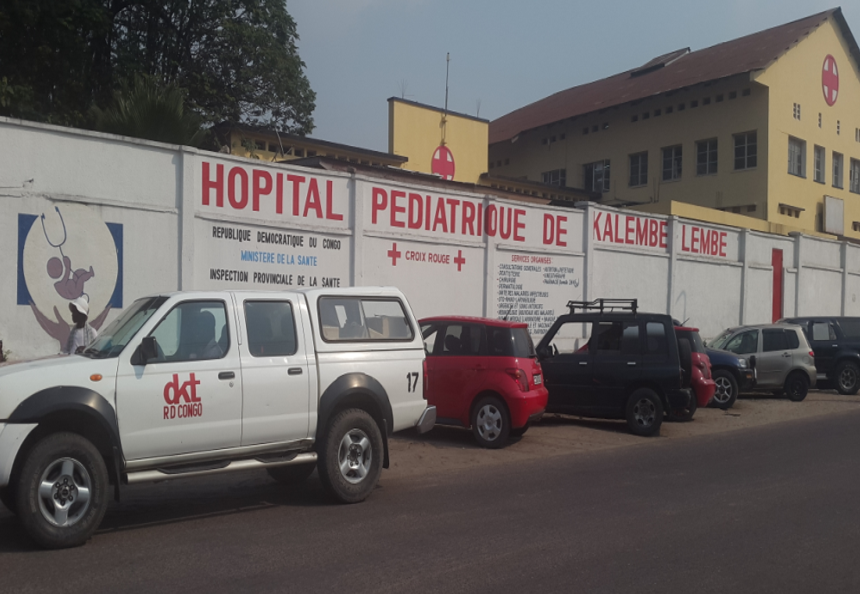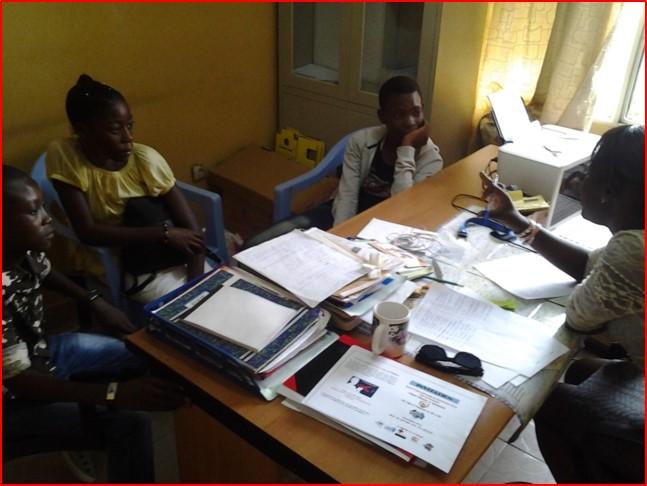Faustin Kitetele Ndolumingo: Peer-educators as game changers
Faustin Kitetele Ndolumingo’s PhD is about improving the quality of life for children living with HIV. The CIH PhD candidate is based at the Kalembe Lembe Paediatric Hospital in the Democratic Republic of Congo (DRC).
Main content
Ndolumingo’s work may well provide a model for use with children and adolescents living with HIV in other settings in Africa and elsewhere.
Dilemma: Disclosure and better health vs negative stigma
Despite the fact that treatment for HIV is free, and that it results in better health, and ultimately can lead to better school results, there is a particularly strong stigma around people living with HIV in Africa. As a result, people with positive serology generally do not reveal their status to other family members. However, disclosure has been shown to lead to better adherence to the daily drug regimen that holds HIV/AIDS in check, and thus to better health. Untreated HIV/AIDS does not go away and the disease has high social and economic costs, in addition to physical and mental health challenges.
Ndolumingo quoted the 2019 edition of Fundamentals of HIV Medicine (OUP) as saying, “Adolescents or youth who are living with HIV may have multiple developmental, cognitive, social, contextual, and environmental challenges that impact their identification, linkage, and engagement with care”.
He is a doctor at Kalembe Lembe Pediatric Hospital. It is the only exclusively paediatric hospital in DRC. In 2018, Africa accounted for 68% of the global burden of HIV positive individuals. Adolescents are the only age group where the number of AIDS-related deaths is actually increasing. Ndolumingo undertook a PhD research project to address aspects of this issue. He is particularly interested in the mental health of children and adolescents affected by this dilemma.
Disclosure decisions
Disclosure is an important component in the comprehensive management of children living with HIV. Poor adherence to treatment is often the main cause of treatment failure. This poor adherence can be a result of non-disclosure or a lack of knowledge about the disease.
In their “Guideline on HIV disclosure counselling for children up to 12 years of age”, the WHO state that “Disclosure is crucial to the continuum of HIV care.” The WHO Guidelines further state that:
“… disclosure decisions are complex because of stigma, social support concerns, family relations, parenting skills and concern about children’s emotional and maturational ability to understand and cope with the nature of the illness.” In many places, clinical experience has shown that children respond better to their illness when they are given appropriate information about their condition.
It is important that Health Care Workers are informed about disclosure challenges, and that they know about and are able to use the WHO guidelines as part of their comprehensive approach to ensuring the well-being of HIV positive children. Ndolumingo’s first paper underlines the importance of involving and supporting parents in the disclosure process. The overall goal of his research is to improve morbidity and reduce mortality in HIV-positive children.
Importance of peer-educators
Ndolumingo’s work (Paper II) shows that when peer educators were involved in positive HIV status disclosure in adolescents, there was better acceptance, better ART adherence and higher self-esteem (or fewer negative mental health effects) among the ‘”disclosed” adolescents than the “non-disclosed” ones.
A peer educator is an adolescent/young person living with HIV, who knows their own HIV status, who engages in healthy behaviours including good adherence to treatment, and who is also trained in ways of supporting of people living with HIV and how to use the tools of the disclosure process.
Ndolumingo’s research showed that peer educators helped to motivate more lasting behavioural changes in the “disclosed” adolescents. In his conclusions he writes that “there were statistically significant differences between disclosure and non-disclosure on quality of adherence of ART therapy and psychological well-being [when peer educators were part of the process]” in terms of reduced viral loads in follow-up measurements.
Model approach
At his mid-way evaluation where he presented his results thus far, Evaluator Professor Maj-Britt Rocio Posserud, from the Department of Clinical Medicine at UiB, underlined the importance of this work and said that these results could form the basis of a valuable model for health workers dealing with HIV-positive adolescents in other settings.
Ndolumingo’s results also indicated other important factors including timing, use of self-support groups, follow-up etc. However, as adolescents tend to resist dominant authority figures (parents, health workers), his results show that the effect of using peer-evaluators in the process is a “game changer”.
Ndolumingo’s work makes an important contribution to DRC coming closer to attaining UNAIDS’ 90-90-90 goal.



